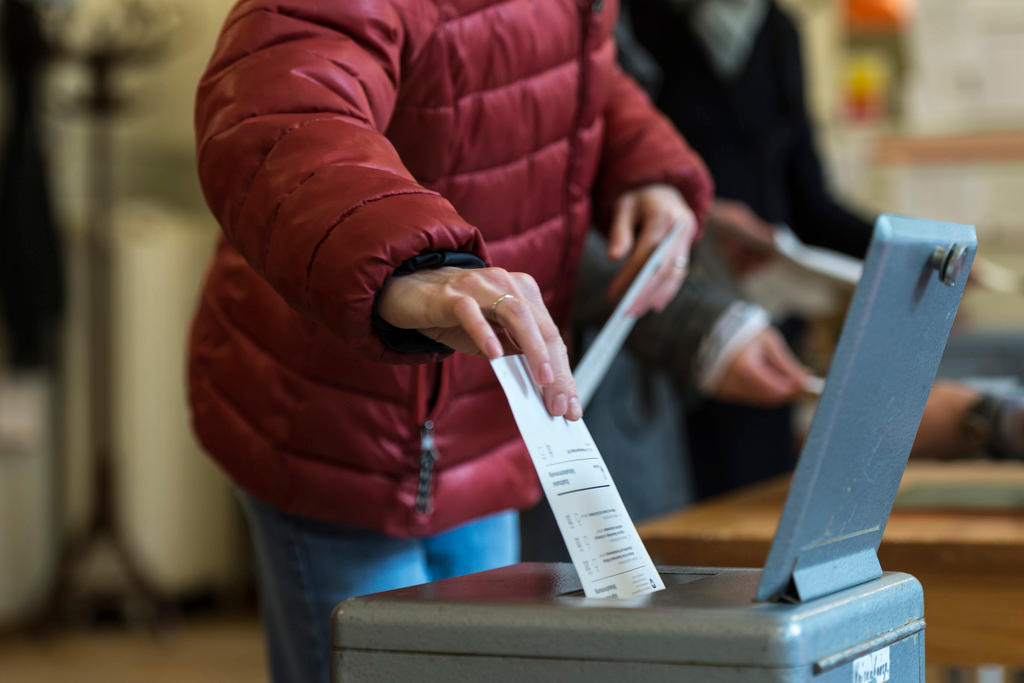
Swiss look into online manipulation ahead of national polls

Several government ministries in Switzerland are investigating whether online manipulation could affect upcoming elections, says a newspaper report.
The Federal Office of CommunicationsExternal link has set up a government working group to look into the effects of artificial intelligence on the media and public opinion, writes the NZZ am Sonntag paper. This group was set up last September and is headed by the education and research ministry, spokesman Francis Meier told the paper.
Last October Swiss intelligence chief Jean-Philippe Gaudin also warned that foreign actors could try to influence the next national elections through online artificial intelligence, saying he would propose appropriate measures to the government.
Intelligence spokeswoman Isabelle Graber would not say if he has already done so, the NZZ am Sonntag continues. But she confirmed that the Federal Intelligence Services and its partners responsible for security in Switzerland were “dealing with the issue of influencing operations, especially in connection with the elections of 2019”. Influencing operations, in the jargon of the secret service, are operations such as social bots to manipulate public opinion, the paper explains.
And who does the Swiss secret service think could be capable of such operations? Its latest situation report points particularly at Russia.
The Federal Chancellery is also looking into the issue, reports the NZZ am Sonntag. And in coming weeks, Swiss authorities will be carrying out a hacker test to check the security of e-voting systems.
In a related article, the same newspaper reports that all the country’s political parties are banking on social media such as Facebook, Instagram and Twitter for their election campaigns. But the use of digital tools in election campaigns is still under-regulated, according to the NZZ am Sonntag. It quotes Swiss data protection commissioner Adrian LobsigerExternal link as saying that a new data protection law is needed.

More
‘Fake news’: The thorny question of safeguarding elections

In compliance with the JTI standards
More: SWI swissinfo.ch certified by the Journalism Trust Initiative





























You can find an overview of ongoing debates with our journalists here . Please join us!
If you want to start a conversation about a topic raised in this article or want to report factual errors, email us at english@swissinfo.ch.